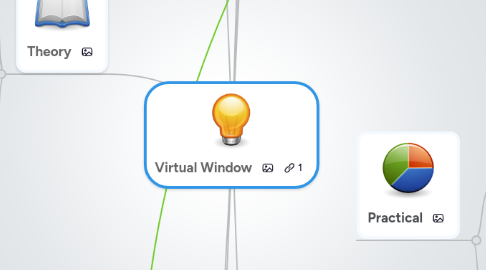
1. Game Studies
1.1. Jane McGonigal
1.1.1. Reality is Broken (2011)
2. Khan Academy
3. The Sims
4. Fixed World
5. Downloadable
6. A Digital Game-based Learning Environment by Stephan Calitz
7. Resources
7.1. Software
7.1.1. Autodesk
7.1.1.1. Softimage
7.1.2. Adobe
7.1.2.1. Illustrator
7.1.2.2. Flash
7.1.2.3. AfterEffects
7.1.2.4. Photoshop
7.1.3. Development Platforms
7.1.3.1. Unity 3D
7.1.3.1.1. Tools & Plugins
7.1.3.2. Mobile
7.1.3.2.1. Android
7.1.3.2.2. iOS
7.1.3.3. Desktop
7.1.3.3.1. Browser
7.1.3.3.2. Standalone
7.2. HR
7.2.1. Development
7.2.1.1. Dagan Read
7.2.1.2. Stephen Bester
7.2.2. Design
7.2.2.1. Kevin Lawrie
7.2.2.2. Werner Burger
7.2.3. Animation
7.2.3.1. Charl Pieterse
7.2.3.2. Christoper Pinto
7.2.4. Sound
7.2.4.1. Jacob Israel
7.2.5. 3D
7.2.5.1. Devon Callaghan
7.2.5.2. Hendre vd Walt
7.2.5.3. Shane McMahon
7.3. Budget
7.4. Marketing
7.4.1. Competitions
7.4.1.1. gSummit
7.4.1.2. Information is Beautiful
7.4.1.3. STEM Video game Challenge
7.4.1.4. Brain POP
7.5. Support
8. Practical
8.1. Gamification
8.1.1. Practice
8.1.1.1. Gabe Zichermann
8.1.1.1.1. Gamification by Design (2011)
8.1.1.2. Tim Chang
8.1.1.2.1. Venture Capitalist
8.1.1.3. Rajat Paharia
8.1.1.3.1. Bunchball
8.1.1.4. Amy Jo Kim
8.1.2. Process
8.1.2.1. Player
8.1.2.1.1. Profile
8.1.2.1.2. Avatar
8.1.2.1.3. Experience
8.1.2.2. World
8.1.2.2.1. Virtual Space
8.1.2.2.2. Information
8.1.2.3. Motivation
8.1.2.3.1. Social
8.1.2.3.2. Status
8.1.2.3.3. Curiosity
8.1.2.3.4. Thumbing
8.2. System Design
8.2.1. System Requirements
8.2.1.1. Networking
8.2.1.2. Hosting
8.2.1.2.1. Information Design
8.2.1.2.2. Database Management
8.2.1.2.3. Analytics
9. Theory
9.1. Digital Development
9.1.1. Game Design
9.1.1.1. Jesse Schell
9.1.1.1.1. The Art of Game Design (2008)
9.1.2. e-Learning
9.1.2.1. Salman Khan
9.2. Game-based Learning
9.2.1. James Paul Gee
9.2.1.1. Language and Learning in the Digital Age (2011)
9.2.1.1.1. Leading thinker on Games for Learning
9.2.2. Marc Prensky
9.2.2.1. Digital Game-Based Learning (2007)
9.2.2.1.1. Understanding the Learner/Player
9.3. Game Theory
9.3.1. Player Behaviour
9.3.1.1. Richard Bartle
9.3.1.1.1. Designing Virtual Worlds (2003)
9.3.1.2. Mihaly Csikszentmihalyi
9.3.1.2.1. Flow: The Psychology of Optimal Experience (2009)
9.3.2. Game Mechanics
9.3.2.1. Karl Kapp
9.3.2.1.1. The Gamification of Learning and Instruction (2012)
9.3.2.2. Ralph Koster
9.3.2.2.1. A Theory of Fun for Game Design (2003)
9.4. Systems Thinking
9.4.1. Complexity
9.4.1.1. David McCandless
9.4.1.1.1. Information is Beautiful (2010)
9.4.2. System Design Methodology
9.4.2.1. Dennis Buede
9.4.2.1.1. The Engineering Design of Systems: Models and Methods (2009)
9.4.3. Systems Engineering
9.4.3.1. Derek Hitchins
9.4.3.1.1. Systems Engineering: A 21st Century Systems Methodology (2007)
10. Supervisors
10.1. Research
10.1.1. Jan Koster
10.1.2. Pluto Panoussis
10.2. Implimentation
10.2.1. Nico Du Plussis
10.2.2. Sven Berstrom

